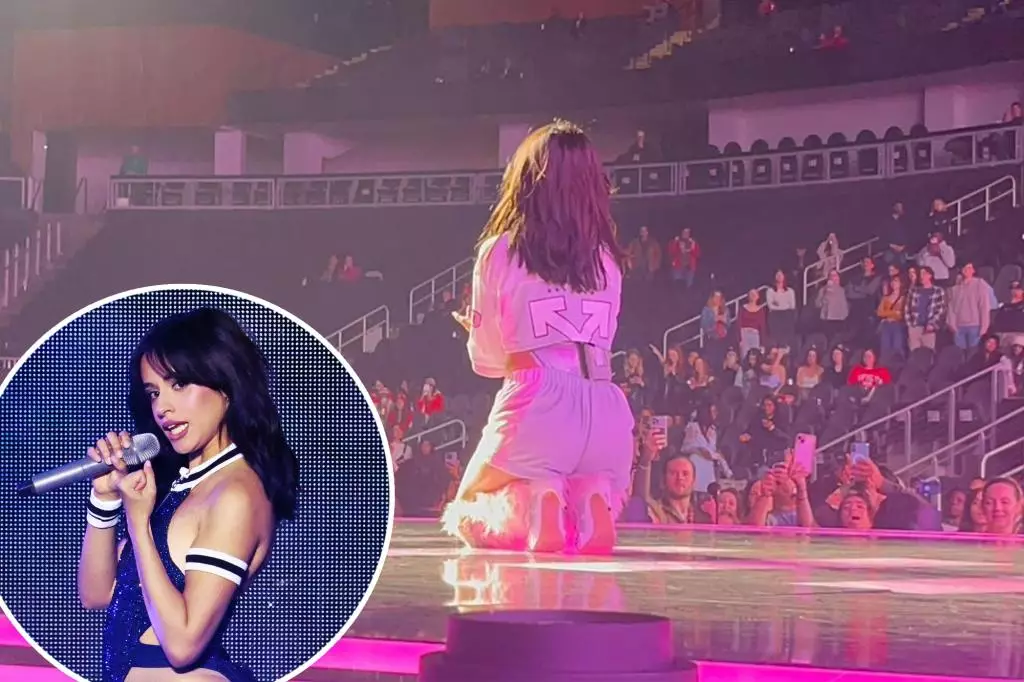Recently, Camila Cabello took to the stage in Atlanta, Georgia, for a performance that sparked significant social media buzz—not all of it positive. Pictures circulating online depicted an almost empty State Farm Arena, leading to critical commentary from various users on X. One user boldly proclaimed, “that s–t was EMPTY,” highlighting the extent of the crowd’s absence and labeling Cabello, who is now 27, as a “flop.” This commentary raises an essential question about artist visibility and marketability in the modern music industry.
The backlash didn’t end there. Another social media user pointed out that roughly only 30% of the concert’s tickets sold, prompting speculation about why artists like Cabello would proceed with shows in such conditions. Critics questioned the logistics and emotional toll of performing for a sparse audience, arguing that it might be more beneficial to cancel rather than risk embarrassment and financial loss. However, an intriguing counterpoint emerged from fans and fellow artists alike, emphasizing that live performances—regardless of audience size—hold intrinsic value for both the performer and the attendees.
Rapper Mod Sun voiced solidarity for Cabello, arguing that many artists would have canceled the show in similar circumstances, citing mental health as a common reason. In his view, Cabello’s decision to carry on was a testament to her dedication. He stated, “That show meant the world to the people in the crowd that night,” emphasizing the importance of such intimate performances, even if they lack typical attendance. This sentiment resonated with a number of fans who lauded her commitment to the art, stating that a true performer values their audience regardless of numbers.
In a heartfelt Instagram post following the concert, Cabello expressed her appreciation for her fans, describing their relationship as transformative and sacred. She articulated a profound understanding that attending a concert goes beyond just a moment of entertainment; it is a shared experience that fosters community and inspires. Her words reflect a broader theme that resonates with many artists today, where the bond between artist and audience transcends the conventional metrics of success.
Camila Cabello’s rise to fame began in 2012 when she auditioned for “The X Factor” as part of Fifth Harmony. Since departing the group in 2016, she has released four solo albums, earning significant acclaim for hits like “Havana” and “Señorita.” The group’s hiatus declared in 2018 left a mark on Cabello’s solo trajectory, challenging her to carve out a unique identity in the eclectic music landscape. This recent performance in Atlanta may be seen as a small chapter in her evolving story, showcasing the hurdles artists face as they navigate the balancing act between staying true to their craft and achieving commercial success.
While the Atlanta show did not attract the expected crowds, Cabello’s ability to perform for those who showed up marks a pivotal moment in her career—a reflection of strength, humility, and resilience. As she continues to evolve as an artist, it is this very commitment to connecting with her audience that solidifies her place in the music scene. In an industry fraught with challenges and setbacks, it’s a testament to her character to embrace every opportunity to perform, showcasing that success is not solely defined by sold-out venues but by the genuine connections formed with those who appreciate her artistry.

